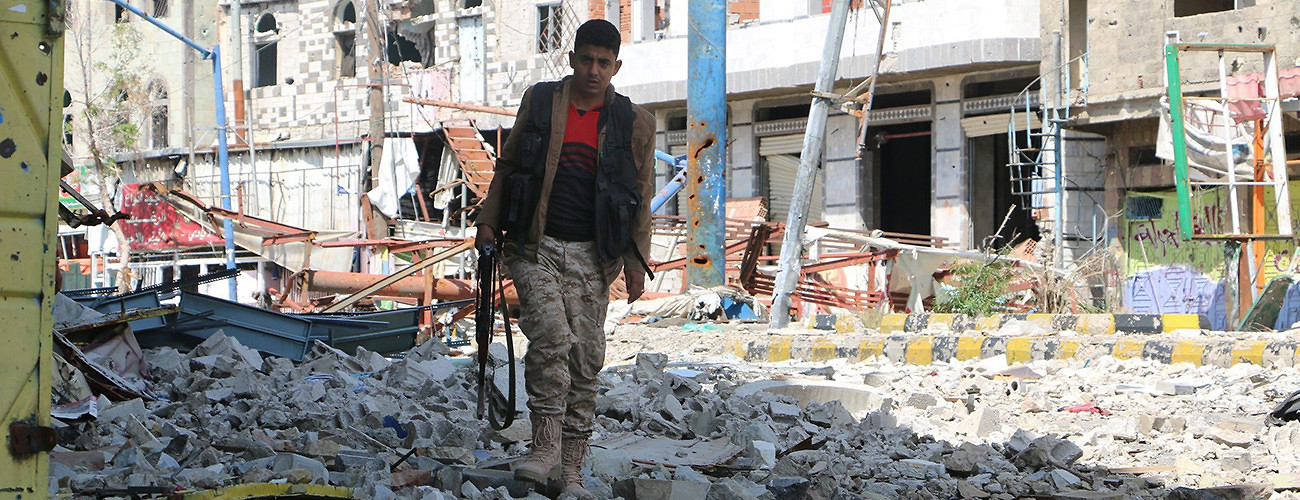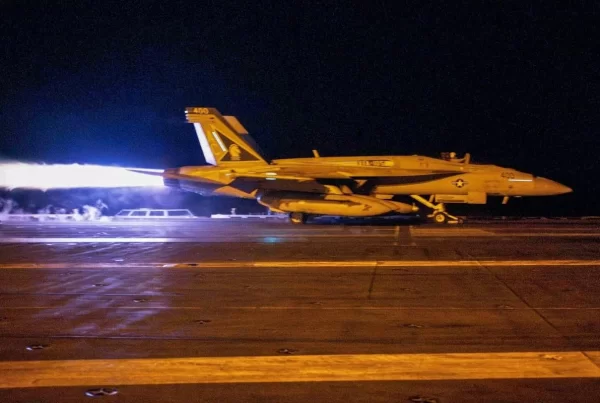The parties to Yemen’s devastating civil war are due to meet for talks in Geneva tomorrow, triggering a seven-day ceasefire and the hope of a more lasting peace to come. Farea Al-Muslimi, Visiting Fellow at the Carnegie Middle East Center and Chairman of the youth-oriented Sanaa Center for Strategic Studies, said the lack of a positive outcome could set back the vital process significantly.
“The most important thing about these negotiations is that if they are to happen and fail, it would be worse than if they didn’t happen in the first place, because it will send a very wrong message in Yemen and escalate the conflict further,” Mr. Muslimi said, in a conversation with the Global Observatory Assistant Editor James Bowen.
“We will have to wait and see, but if we miss this opportunity for peace now it’s very unlikely we will have a chance again anytime soon. The real fear is that both sides are losing command and control, so that even if they agree on peace they might not have the will to achieve it.”
Mr. Muslimi said a ceasefire could begin paving the road back to stability for Yemen, though some processes would take years, or even decades.
“That’s something we should be alert to, and we should avoid the sort of mistakes that were made in the past political deals in Yemen, which were ultimately concerned with the elites’ problems and desires, rather than ordinary Yemenis’ desires,” he said.
What are your realistic expectations about what can be achieved at the Yemen peace talks in Switzerland, and how are the various parties approaching them?
The most important thing about these negotiations is that if they are to happen and fail it would be worse than if they didn’t happen in the first place, because it will send a very wrong message in Yemen and escalate the conflict further. For peace to occur, there needs to be a very clear will from both sides and that doesn’t seem to be happening at the moment. The Houthis could have released their prisoners and the Saudis could have ended their economic siege in Yemen as acts of good conscience. The government has declared they are willing to implement a ceasefire, but just like last time it’s easier said than done. We will have to wait and see, but if we miss this opportunity for peace now it’s very unlikely we will have a chance again anytime soon. The real fear is that both sides are losing command and control, so that even if they agree on peace they might not have the will to achieve it.
Meanwhile, a $1.3 billion USD weapons deal for Saudi Arabia is expected to soon pass US Congress, despite concerns from human rights groups over the Saudi role in Yemen. How are international, and particularly Western, decisions affecting the crisis?
Clearly, the US and the international role have been very unhelpful in matters of protecting civilians and upholding humanitarian law. This isn’t a new thing. Since the US and the UK backed off from the Dutch proposal for an international fact-finding committee in Geneva, both sides of the conflict—the Saudis and the Houthis—have extended and increased their level of violence and used that as a sign of the absence of any possible accountability.
It is devastating the level of unconditional support that is being given to the Saudis by the international community, including the US. It’s hard to see how this will make Yemen or the Saudis more peaceful or how it will add to the efforts to end the conflict, which has killed more than 6,000 Yemenis and put more than six million more on the edge of famine.
Given the Sanaa Center’s focus on youth, can you tell us about how young people have been affected by the Yemen crisis so far, and what role they might play in ending it?
One of the reasons that the Houthis and al-Qaeda have been so successful is that they took very good advantage of youth. Youth have been a lot of the driving force for this conflict and that’s why it’s very hard to imagine any possible peace going forward if they are to be excluded again, just as they were in 2011 by the internationally backed deal in Yemen.
Right now we have an entire generation of youth that have been terrified or terrorized by this war and who have been going through one of the most devastating psychological impacts imaginable. If we are thinking about peace in the future, we should invest in rebuilding the Yemeni people, including the youth, children, and women. Most important is thinking about alternative policies that can make the best and not the worst out of youth.
There is a strong international focus on tackling violent extremism at the moment. Yemen has had a well-known problem with al-Qaeda for many years and more recently ISIS has taken advantage of the instability there. What do you think is the key to eradicating these groups, and can it be done in the current climate?
Effective government and effective leadership are the keys. When you have a poor governmental performance and a poor political leadership, any group will obviously take over power and will fill the vacuum, whether we are talking of the Houthis, al-Qaeda, or anyone else. The main focus in terms of eliminating al-Qaeda and eliminating every other non-state group in Yemen is ending the war. As long as the war is continuing, and as long as this deadly conflict increases, people and youth will have less opportunity and it will allow groups like al-Qaeda and ISIS to continue to thrive. The way to eliminate them starts with an immediate ceasefire in Yemen and going back to a political path that was maybe not the best, but was at least there for the youth and all Yemenis.
As well as thousands being killed in conflict as you’ve mentioned, the UN estimates 2.3 million Yemenis have been displaced and more than 14 million lack adequate food. Do you have an idea of the scale and timeframe necessary for rebuilding, even if a political outcome can be achieved soon?
Even if we have a ceasefire tomorrow, I don’t think that will bring peace necessarily. What it will do is start paving the right road for Yemen to be on, but for some processes that will take years or decades. Despite the terrifying numbers in Yemen right now, what everyone needs to realize is that one more day in the war will take 10 days to rebuild in the near future. That’s something we should be alert to, and we should avoid the sort of mistakes that were made in the past political deals in Yemen, which were ultimately concerned with the elites’ problems and desires, rather than the ordinary Yemenis’ desires. We should be answering the real questions around the economy, humanitarian outcomes, and social and political inclusion.






